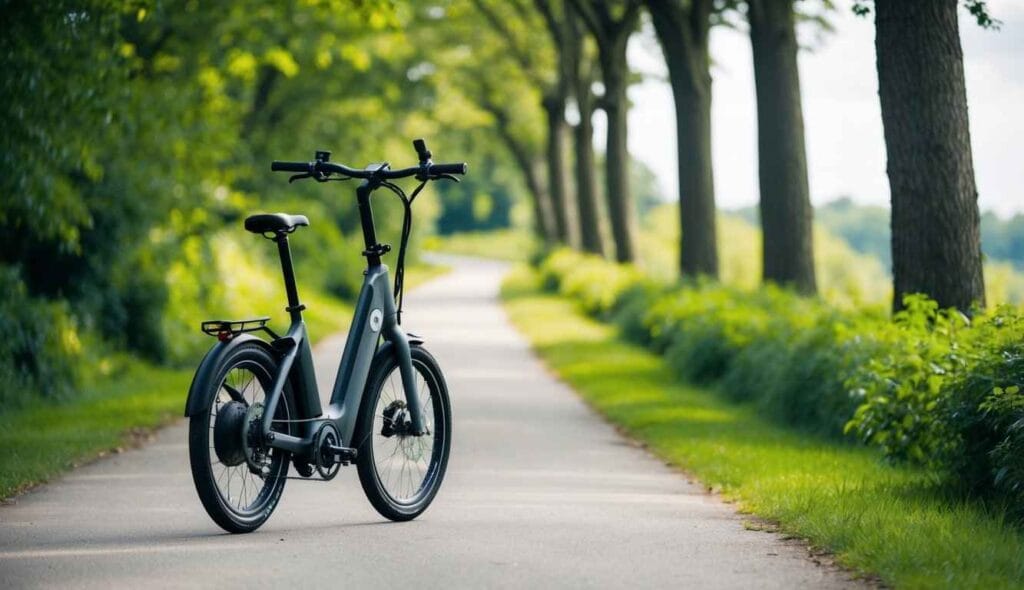
Are you considering an e-bike and looking at all the pros and cons? One of the massive benefits is the eco-friendly angle, but a lot of people are unsure about what makes e-bikes so eco and whether they’re really that beneficial.
There are quite a few things that make e-bikes eco-friendly, with the main one being that they make cycling a far more practical form of transportation. They are massively more environmentally friendly than cars and can be a key part of cutting down greenhouse gas emissions. Many people think they are going to be crucial to creating a sustainable future.
With that in mind, let’s check out why e-bikes are so environmental and what they do to make life more eco-friendly!
Reason 1) They Make Cycling More Convenient
E-bikes make the idea of cycling more realistic and appealing for many people.
With electric assist, riders can tackle routes more easily and travel longer distances without becoming overly tired. This means commuting to work or traveling to a friend’s house becomes a feasible option.
The jump in e-bike sales shows their growing popularity. Sales have risen significantly, even outpacing electric car sales in some regions. This suggests that many people see e-bikes as a practical transportation solution, especially in cities.
Benefits of Electric Assistance:
- Reduced Physical Strain: Ideal for those who want to cycle but are concerned about fatigue.
- Suited for All Terrains: Hills and inclines are much more manageable.
- Increased Frequency: More likely to choose cycling over other transportation due to ease of use.
Electric assist offers flexibility that regular bikes often lack, encouraging a shift away from cars for many urban journeys. This convenience is a key factor in why e-bikes are becoming an essential part of sustainable urban travel.
Reason 2) They Make Cycling More Realistic

E-bikes transform cycling into a practical mode of transportation by overcoming traditional cycling limits.
Big hills and long distances often deter individuals from using standard bikes due to exhaustion and time constraints. E-bikes address these challenges by offering increased speed and reducing travel times significantly.
For instance, a commute that might take an hour using a regular bike can take about thirty minutes with an e-bike.
This speed advantage means that destinations previously considered too far become easily reachable.
Commuting to work, running errands, or visiting locations miles away becomes feasible without fatigue. The electric motor assists in tackling hilly terrains and makes carrying cargo less daunting.
Additionally, the lightweight build of many e-bike models ensures easy maneuverability.
This combination of speed and efficiency encourages more frequent use of e-bikes instead of cars, promoting greener travel.
The enhanced accessibility to various destinations not only incentivizes cycling but also aligns with a more sustainable lifestyle.
Reason 3) They Make Roads More Bicycle-Friendly
The presence of more cyclists encourages the creation of bike lanes, making roads safer for everyone.
E-bikes are part of this shift, as their rising popularity pushes local authorities to improve infrastructure for cyclists. The visibility and consideration of cyclists by car drivers increase, reducing risks for those on bikes.
Roads with more bicycles experience fewer cars, which contributes to better air quality by lowering air pollution levels.
This reduction in vehicles also aids in noise reduction, creating quieter and more pleasant urban environments.
E-bikes offer an efficient way to achieve cleaner air and a more sustainable city life.
The trend toward cycling fosters a healthy balance between different modes of transportation.
By opting for e-bikes, individuals play a crucial role in enhancing the overall cycling experience in their communities.
Reason 4) They Ease Congestion

Traffic congestion is a major issue in many urban areas, leading to frustration, wasted time, and increased fuel costs.
E-bikes offer a practical solution by reducing the number of cars on the road. This results in less idling, which helps decrease fuel consumption and harmful emissions.
Using e-bikes enables riders to navigate through congested traffic more efficiently, taking advantage of bike lanes and less-used pathways.
In terms of cost savings, e-bikes offer a significant advantage over cars.
Cyclists save money on fuel and parking fees while contributing to alleviating traffic congestion. This eco-friendly transport option helps cities manage the problem of too many vehicles competing for limited road space.
E-bikes also provide a way to reduce congestion in non-pedestrian-friendly cities.
By promoting accessibility, e-bikes decrease the need for individuals to rely on cars, further easing the burden on city infrastructure.
As cities aim to become more bike-friendly, e-bikes can play a key role in enhancing urban mobility and environmental health.
Read Also: How E-Bikes Contribute to Sustainable Transportation
Reason 5) E-Bikes Are More Energy-efficient

E-bikes offer a significant boost in energy efficiency compared to traditional vehicles.
They consume only about 0.025 kWh per mile, whereas cars usually use around 0.34 kWh per mile. This demonstrates a stark contrast in energy use, making e-bikes a highly energy-efficient option.
By choosing e-bikes, individuals can effectively reduce their carbon footprint and environmental impact. This transition supports eco-friendly and green transportation efforts leading to a healthier environment.
Reason 6) They Increase Accessibility
E-bikes are a more accessible form of transportation compared to traditional bikes, especially for those with certain disabilities or individuals who are not physically fit but wish to engage in some form of exercise.
This increased accessibility contributes to sustainable transportation, making it easier for a wider range of people to enjoy the health benefits associated with cycling. E-bikes help users by assisting with pedaling, which can improve cardiovascular health without causing excessive strain.
For those looking for a cost-effective alternative to car travel, e-bikes offer a viable option that supports urban mobility and reduces air pollution.
By providing an affordable means of getting around, they enhance the quality of life for many, allowing for greater independence and mobility. Moreover, their ability to extend the range of travel makes them an attractive choice for bridging gaps in public transport.
Explore more about this through these guides: How To Choose The Perfect E-Bike For Your Needs and Starting Strong: E-Bike Riding Tips For Novices.
Conclusion
E-bikes offer a viable solution for those aiming for a more sustainable lifestyle. They help reduce reliance on cars, which can lower emissions and ease urban congestion. This shift aligns with governmental goals and makes e-bikes a more practical choice for diverse populations who might find traditional bikes challenging.
For more insights, explore how the eBike aids sustainability, discover the benefits of electric bikes on National E-Bike Day, and learn about the future of green transit with electric bicycles.
Reference Sources
The eBike – Sustainability that aids progress.
How an electric bike can benefit you?
Are electric bikes the future of green transportation?
Pedaling Towards a Sustainable Future with the Power of Electric Bicycles








